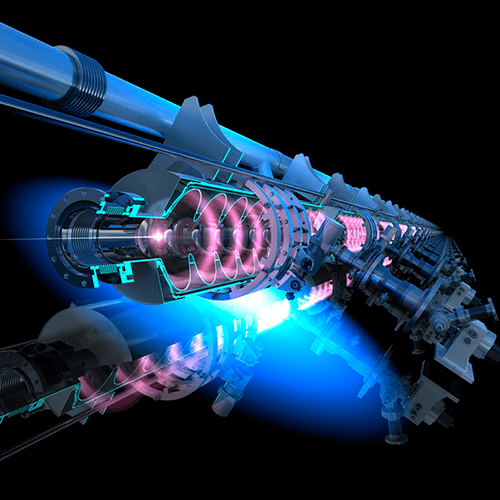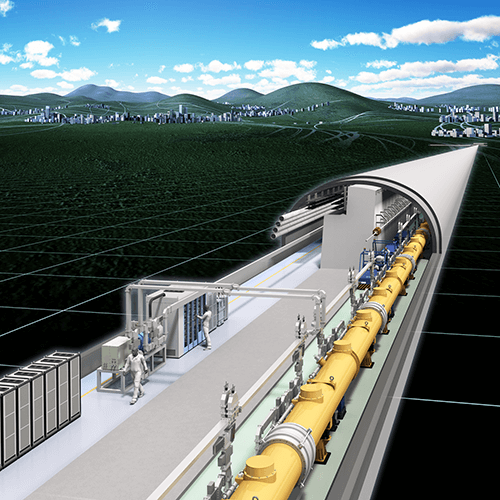Vision
The AAA Vision
Advancing in Science and Technologies
with State-of-the-Art Electron-Positron Accelerator Development

The ultimate challenge for people all over the world is to exploit the intellectual frontiers of humanity to find answers to the questions of all time: mysteries regarding the pristine and future state of the Universe, our existence, and the matter and space that comprise the Universe. In the past we have tried to find answers to these questions by observing Universe, exploring the space and reproducing the initial state of the Universe by conducting a range of accelerator-based research activities. "Necessity is the mother of invention," as Pluto once said; necessity often leads us to surprising outcomes that occur in the process of trying to achieve a significant purpose or objective. Not so long ago, these findings brought us electronics and nuclear energy; the development of new technologies has dramatically changed our world, especially in the fields of medical treatments, pharmaceutical drugs, life science and new materials. Advances such as radiation technologies, including research on anti-matter, have made a significant contribution to today's medical science. One of today's well-known technologies, the (World Wide Web), was originally conceived and developed to meet the demand for automatic information sharing between scientists all over the world to conduct accelerator-based collaborative research activities at the European Organization for Nuclear Research (CERN). The latest development in the field of advanced accelerators is the International Linear Collider (ILC) project. The ILC is a new type of accelerator stretching over 30km in length underground and is based on today's state-of-the-art advanced accelerator science and technology. We believe that the new intellectual and technological horizon will be broadened based on the superconducting proton accelerator technology of this project. The project is expected to develop into a new technology infrastructure of the 21st century by delivering breakthroughs in catalytic and vital reactions, research and development (R&D) activities for next-generation products (such as batteries, pharmaceutical drugs and new materials), and even partitioning and nuclear transformation technology of radioactive waste processing. Today, advanced proton accelerator technologies are about to take a new turn.

Japan has accomplished and contributed to important scientific and technological results in the past, yet, we have not achieved enough to truly call ourselves global leaders in science and technology. Moreover, Japan is facing serious problems in the younger generations: according to the latest results of the Program for International Student Assessment (PISA) project conducted by OECD, our children are showing a lack of interest in learning and taking on challenges. Today, large numbers of Asian researchers and technicians from countries such as China and India are attracted by the U.S. and European nations due to the opportunities for developing their careers. To make the 21st century truly the age of Japan and Asia, we must focus on developing a new form of research environment under the Government-Industry-Academia collaboration to sustain a brain gain but a brain drain here in Asia. The ILC will result in great expectations for the future of Japan and Asia, when not only the younger generations but all generations cultivate their academic curiosities and dreams once again to focus on science and technology as a national strategy.
The AAA has designated the ILC as its core project. The Association aims to exploit the intellectual horizon of humanity in various research fields (such as space, elementary particles, material and life science), take on new global-level assignments (such as medical applications, energy and environment) and strengthen international competitiveness in today’s advanced accelerator science and technology. Accordingly, the goal of the Association is to establish a new form of system to gain strategic cooperation from the multilateral collaborations among industry, academia, government and people with the relevant knowledge and experience, to build international research collaborations, especially among Asian countries, to achieve the understanding of the general public regarding basic science and the latest accelerator technologies through various outreach programs and to work on assignments on intellectual properties associated with the ILC.
All the Promoters of the Association sincerely appreciate your understanding and support of our Vision and invite you to join the Association today.
Members of the AAA Promoters
